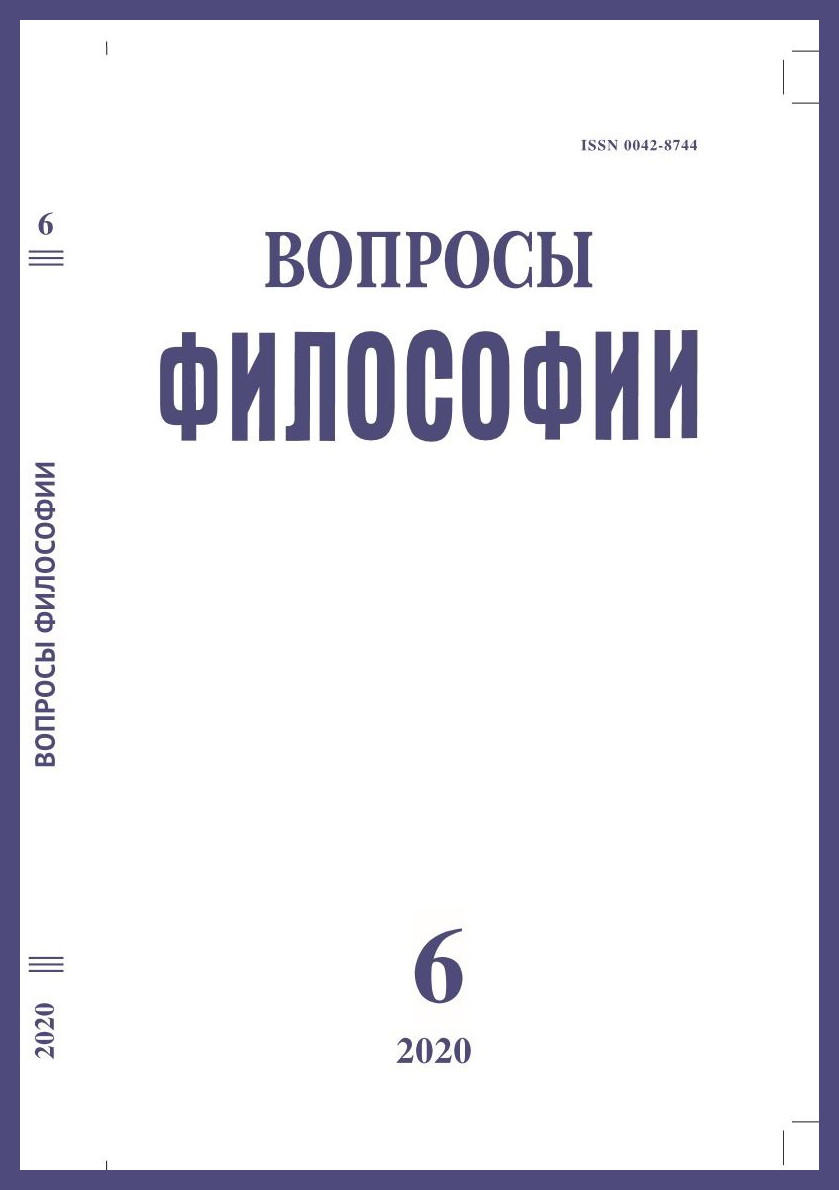A.F. Losev’s Dialectics and Phenomenology
DOI:
https://doi.org/10.21146/0042-8744-2020-6-116-125Keywords:
dialectics, hermeneutics, aristotelianism, Platonism, transcendentalism, phenomenology, philosophical anthropology, fundamental ontology, eidos.Abstract
The article analyzes the forming of dialectic method by Aleksei Losev through the prism of critics of Edmund Husserl’s phenomenology that claims to be universal. On the whole, the Russian thinker identifies and phasedly analyzes three methods: the phenomenological, transcendental, and dialectical. He considers the latter as complete and holistic, including the previous ones as its steps. He uses a platonic understanding of eidos and the interpretation of dialectics, apparently trying to avoid the Hegelian formalism.
On the one hand, Losev accepts the significance of Husserl’s phenomenological method as basic, on the other he does not agree to remain on it, dialectically interpreting the concept of eidos. It is noted that Heidegger went through analogous evolution (Losev – logically, Heidegger – historically (biographically)) moving from phenomenology to fundamental ontology and hermeneutics. The transformation of phenomenology into a comprehensive method covering various sciences, including philosophical anthropology, is noted today. Losev also applies dialectics both to the interpretation of Christian dogma and to the analysis of the hesychast spiritual experience and addresses the problems of philosophical anthropology

